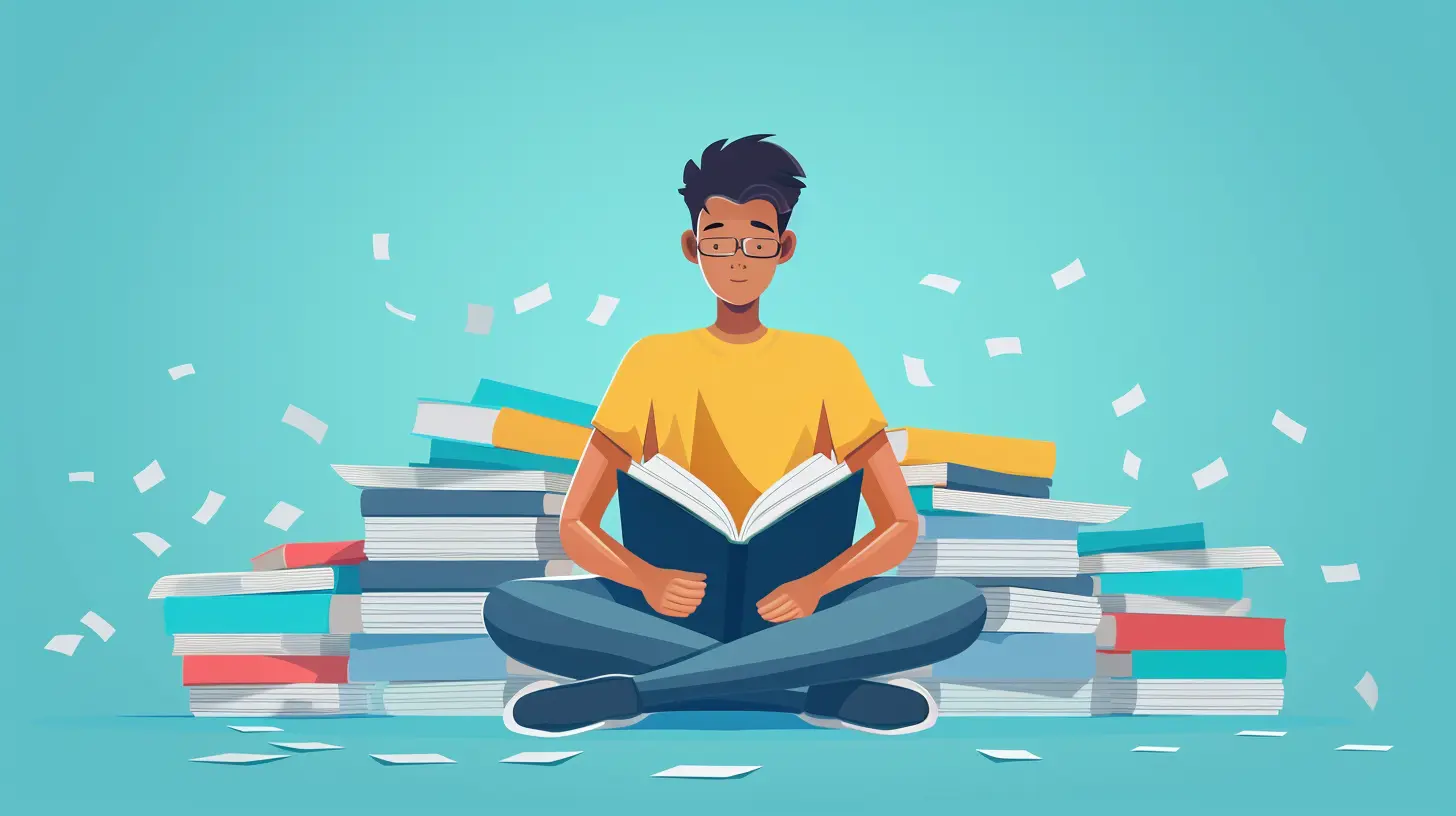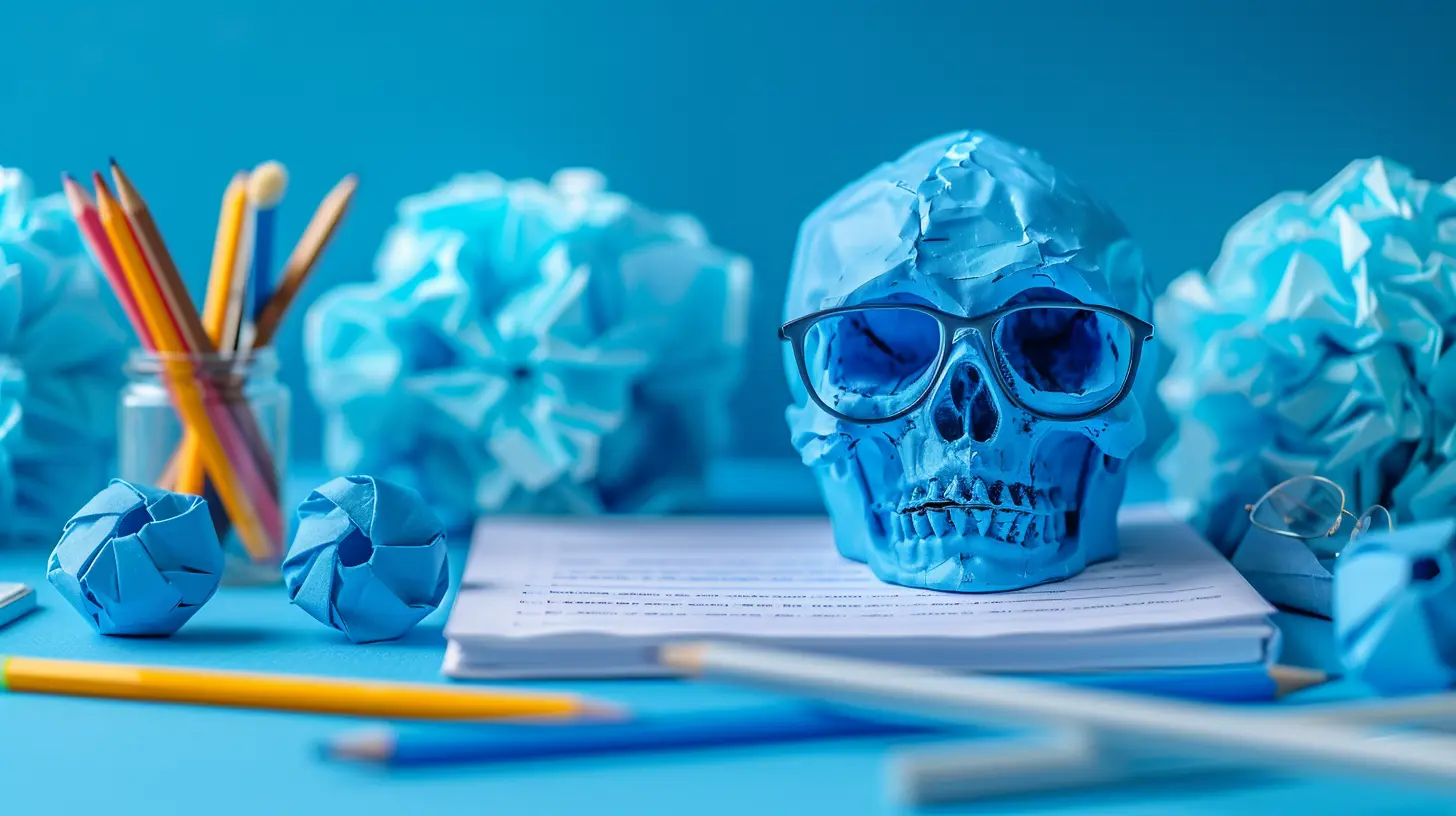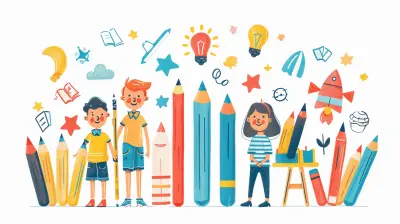16 June 2025
Let’s be honest—studying can feel like climbing an invisible mountain. You think you're prepared, but then exam day rolls around and the panic sets in. Sound familiar? If you've ever struggled to figure out what’s working and what’s not in your study routine, you’re not alone. Good news? There's a simple but powerful tool that can totally transform how you learn: self-assessment.
Now, I know what you’re thinking—“Self-assessment? Isn’t that just for teachers or job evaluations?” Nope. When used right, it becomes your secret weapon in making your study habits smarter, not harder. So, grab your favorite snack, settle in, and let’s dive deep into how self-assessment can make a world of difference in your academic life.
What Is Self-Assessment?
Self-assessment is kind of like holding up a mirror to your study life. It's the process of honestly evaluating your own learning, progress, strengths, and areas needing improvement. This isn’t about beating yourself up—far from it. It’s about growing, improving, and becoming your best study buddy.Think of it like checking your GPS during a road trip. If you don’t know where you are, good luck getting to your destination.
Why It Matters
Let’s face it: no two brains work exactly the same. Some of us are night owls, and others are early risers. Some like flashcards, while others prefer mind maps. Self-assessment helps you figure out what works for you, rather than blindly following someone else’s study plan.
The Link Between Self-Assessment and Effective Study Habits
Alright, so how does self-assessment actually help your study habits? It does a few heavy-lifting jobs:1. Identifying Strengths and Weaknesses
Imagine trying to fix a car without popping the hood. It’s the same with studying—you can’t improve unless you know what’s broken. Self-assessment helps you pinpoint which subjects or topics are your strongest suits and which ones need a little TLC.2. Promotes Active Learning
Passive learning is like watching a cooking show and expecting to become a chef. Self-assessment turns you into an active learner—you’re constantly reflecting, adjusting, and engaging with the material. This keeps your brain sharper and more involved.3. Fosters Independence
When you assess yourself regularly, you become less dependent on external feedback. You stop waiting for teachers or parents to tell you how you’re doing—you already know. That’s empowering, right?4. Builds Confidence
Believe it or not, recognizing your own growth fuels your self-confidence. You see your progress, and that fuels more motivation to keep going. It’s like leveling up in a game—you’re ready for the next challenge because you’ve seen how far you’ve come.
Types of Self-Assessment Techniques
Don’t worry—you don’t need fancy tools or hours of free time to start self-assessing. Here are some easy and effective methods to try:A. Reflective Journaling
Keep a study journal where you jot down what you studied, how you felt about it, and what could be better. It’s like having a conversation with past-you that future-you will totally thank.- What did I study today?
- What was easy? What was a struggle?
- How well do I understand this topic?
- What can I do differently tomorrow?
B. Checklists and Rubrics
Create a checklist of your study goals. After a study session, go back and tick off what you accomplished. Use rubrics to rate how well you understood a topic on a scale of 1 to 5—you’ll see patterns over time.C. Practice Testing
Testing yourself before the actual exam helps you gauge your knowledge. Flashcards, quizzes, or even teaching the material to someone else can reveal what you really know.D. The “Feynman Technique”
Named after Nobel Prize-winning physicist Richard Feynman, this strategy involves explaining a concept in the simplest terms possible. If you can break it down like you're teaching a fifth grader—you’ve truly mastered it.
Integrating Self-Assessment Into Your Study Routine
Okay, so we’ve talked about how awesome self-assessment is. But how do you actually make it a part of your daily grind? Here’s a simple step-by-step approach:Step 1: Set Clear Learning Goals
Start by defining what you want to achieve for each study session. Vague goals like “study math” aren’t very helpful. Go for something like, “Understand and practice 10 problems on quadratic equations.”Step 2: Reflect After Each Session
Take 5-10 minutes post-study session to evaluate:- Did I meet my goal?
- What distracted me?
- What helped me focus?
- What will I do differently next time?
Step 3: Track Your Progress
Use apps, journals, or planners to keep track of what you’ve reviewed and how confident you feel about each topic. When exams approach, this data becomes gold.Step 4: Adjust Your Strategies
Notice that you're always losing focus after 30 minutes? Try shorter sessions with breaks. Keep observing and tweaking—just like a scientist running experiments.Common Barriers (and How to Break Through Them)
Now, let’s get real. Self-assessment sounds great on paper, but it's not always smooth sailing. Here are a few snags students often hit—and how to bust through them.1. “I Don’t Have Time”
Totally understandable. Life is busy. But self-assessment doesn’t have to be a 30-minute affair. Even just 2-3 minutes of reflection can work wonders.Tip: Add a quick reflection question to the end of your to-do list or planner. Easy peasy.
2. “I Don’t Know What to Look For”
Start with basic questions: What did I struggle with? What did I enjoy? Writing them down regularly will start to reveal patterns.Tip: Use apps or templates to guide your self-assessment until it becomes second nature.
3. “I’m Too Hard on Myself”
Hey, be kind to that beautiful brain of yours. Self-assessment isn’t about criticizing—it’s about understanding. Talk to yourself the way you’d talk to a friend going through the same thing.Tip: Note at least one win during each self-assessment, no matter how small.
The Emotional Side of Self-Assessment
You didn’t think we’d forget about your feelings, did you? Emotions play a huge role in how well you study. Self-assessment helps you become aware of how things like stress, anxiety, or even boredom are affecting your performance.When you recognize your emotional patterns, you can take steps to manage them. Maybe you realize cramming the night before gives you anxiety—great, now you know to plan in advance. Understanding yourself emotionally is just as important as understanding the material.
Real-Life Stories: Students Who Benefited from Self-Assessment
Let’s take a peek into the notebooks of a few students who used self-assessment to turn things around.Jenna, Grade 10
Jenna used to wing it before every test. After flunking a major history exam, she started using reflective journaling. She realized she wasn’t reviewing notes until the last minute. Now, she reviews weekly and quizzes herself regularly—and her grades have gone from C’s to B+ and even A’s!Marcus, College Freshman
Marcus struggled with calculus and felt like giving up. He started the Feynman Technique and found he could recall formulas better when he explained them out loud. A semester later? He passed with flying colors.Their secret sauce? You guessed it—self-assessment.
Final Thoughts: It’s All About Progress, Not Perfection
Here’s the truth: self-assessment isn’t a magic wand. You won’t wake up tomorrow with perfect study habits. But what it does offer is something even better—consistent progress.Little by little, day by day, you’ll gain insight, build stronger habits, and most importantly—grow into a learner who understands themselves. And that’s incredibly powerful.
So next time you crack open that textbook or fire up that Zoom class, take a moment to check in with yourself. You’ll be surprised at how much you already know—and how much better you can become.









Josie Green
Self-assessment: the mirror reflecting study success!
December 25, 2025 at 9:39 PM